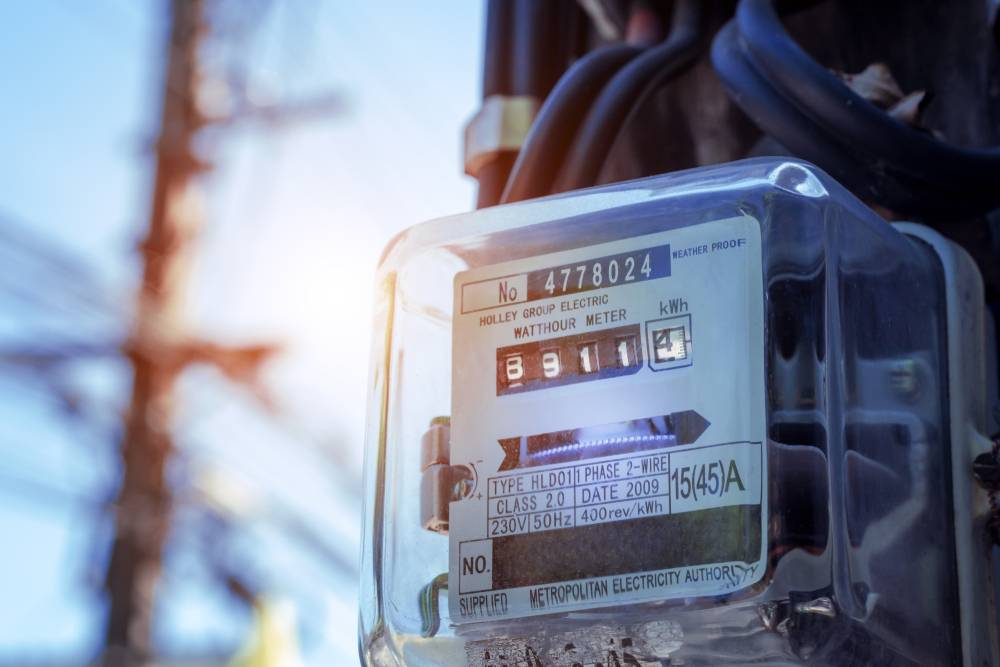 Updated on: January 8th, 2020 3:58 AM
Updated on: January 8th, 2020 3:58 AM
Tamil Nadu Electricity Tax
Under the Tamil Nadu Tax on Consumption or Sale of Electricity Act, 2003, the electricity tax is charged on consumption or sale of electricity in the state of Tamil Nadu. The tax is levied on the last supply of electricity to the consumer and the liability arises when the electricity is supplied. The supplier is responsible for payment of the tax and for all returns. Let us look in detail about the Tamil Nadu electricity tax in this article.Tamil Nadu Tax on Consumption/Sale of Electricity Act, 2003
This Act has come into force on16.6.2003 following the existing Tamil Nadu Electricity Act 1962 and the Tamil Nadu Electricity Duty Act, 1939. According to the Act, 10 paise tax per unit is charged on the self-generated consumption of electrical energy and 5% tax is charged on the net charge of electricity that is sold by the Tamil Nadu Electricity Board or any other licensee.Tax Exemptions
The below following types of consumers are exempted from the levy of the electricity tax.- Railway Administration
- Government Bodies
- Any Local Authority
Calculation of Electricity Tax
The monthly billing that is made by the licensee for the charges, including tax, the tax that is payable in respect of the sale of electricity at the period between the date of coming into the force of the Act and the date of first meter reading recorded would be calculated on the total sale for the period occurring between the readings immediately preceding and immediately regarding the enforcement of the Act as tabulated below:| S.No. | Cases | Tax Per cent |
| 1. | If the term period first aforesaid is 8 days or more but is less than 16 days | 25% of the tax that would have been payable on the total consumption for the period second aforesaid. |
| 2. | If the term period of the first aforesaid is 16 days or more but is less than 24 days | 50% of the tax that would have been payable on the total consumption for the period second aforesaid. |
| 3. | If the term period first aforesaid is 24 days or more but is less than 32 days | 75% of the tax that would have been payable on the total consumption for the period second aforesaid. |
| 4. | If the term period first aforesaid is 32 days and above | The full amount of electricity tax that would have been payable on the whole consumption for the period second aforesaid. |
| S.No. | Cases | Tax Per cent |
| 1. | if the term period first aforesaid is 8 days or more but is less than 16 days | 12.5 % of the tax, that would have been payable on the total consumption for the period second aforesaid |
| 2. | if the term period first aforesaid is 16 days or more but is less than 24 days | 25% of the tax that would have been payable on the total consumption for the period second aforesaid. |
| 3. | if the term period first aforesaid is 24 days or more but is less than 32 days | 37.5% of the tax, that would have been payable on the total consumption for the period second aforesaid. |
| 4. | if the term period first aforesaid is 32 days or more but is less than 40 days | 50% of the tax that would have been payable on the total consumption for the period second aforesaid. |
| 5. | if the term period first aforesaid is 40 days or more but is less than 48 days | 62.5% of the tax, that would have been payable on the total consumption for the period second aforesaid. |
| 6. | if the term period first aforesaid is 48 days or more but is less than 56 days | 75% of the tax that would have been payable on the total consumption for the period second aforesaid. |
| 7. | if the term period first aforesaid is 56 days or more but is less than 64 days | 87.5% of the tax, that would have been payable on the total consumption for the period second aforesaid. |
| 8. | If the term period first aforesaid is 64 days and above. | The full amount of tax that has been payable on the total consumption for the period second aforesaid. |
Popular Post

In the digital age, the convenience of accessing important documents online has become a necessity...

The Atalji Janasnehi Kendra Project that has been launched by the Government of Karnataka...

The Indian Divorce Act governs divorce among the Christian couples in India. Divorce...

When an individual has more than a single PAN card, it may lead to that person being heavily penalised, or worse,...

Employees Provident Fund (PF) is social security and savings scheme for employee in India. Employers engaged...


